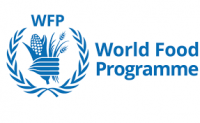Assisting 86.7 million people in around 83 countries each year, the World Food Programme (WFP) is the leading humanitarian organization saving lives and changing lives, delivering food assistance in emergencies and working with communities to improve nutrition and build resilience.
As the international community has committed to end hunger, achieve food security and improved nutrition by 2030, one in nine people worldwide still do not have enough to eat. Food and food-related assistance lie at the heart of the struggle to break the cycle of hunger and poverty.
On any given day, WFP has 5,000 trucks, 20 ships and 92 planes on the move, delivering food and other assistance to those in most need. Every year, we distribute more than 15 billion rations at an estimated average cost per ration of US$ 0.31. These numbers lie at the roots of WFP’s unparalleled reputation as an emergency responder, one that gets the job done quickly at scale in the most difficult environments.
WFP’s efforts focus on emergency assistance, relief and rehabilitation, development aid and special operations. Two-thirds of our work is in conflict-affected countries where people are three times more likely to be undernourished than those living in countries without conflict.
In emergencies, WFP is often first on the scene, providing food assistance to the victims of war, civil conflict, drought, floods, earthquakes, hurricanes, crop failures and natural disasters. When the emergency subsides, WFP helps communities rebuild shattered lives and livelihoods. We also work to strengthen the resilience of people and communities affected by protracted crises by applying a development lens in our humanitarian response.
WFP development projects focus on nutrition, especially for mothers and children, addressing malnutrition from the earliest stages through programmes targeting the first 1,000 days from conception to a child’s second birthday, and later through school meals.
WFP is the largest humanitarian organisation implementing school feeding programmes worldwide and has been doing so for over 50 years. Each year, WFP provides school meals more than 16 million children in 60 countries, often in the hardest-to-reach areas.
WFP purchases 3 million metric tons of food every year. At least three quarters of it comes from developing countries. By buying food as close as possible to where it is needed, we can save time and money on transport costs, and help sustain local economies. Increasingly, WFP meets people’s food needs through cash-based transfers that allow the people we serve to choose and shop for their own food locally.
WFP also provides services to the entire humanitarian community, including passenger air transportation through the UN Humanitarian Air Service, which flies to more than 280 locations worldwide.
Funded entirely by voluntary donations, in 2018 WFP raised a record US$7.2 billion. WFP has more than 17,000 staff worldwide of whom over 90 percent are based in the countries where the agency provides assistance.
WFP is governed by a 36-member Executive Board. It works closely with its two Rome-based sister organizations, the Food and Agriculture Organization of the United Nations and the International Fund for Agricultural Development. WFP partners with more than 1,000 national and international NGOs to provide food assistance and tackle the underlying causes of hunger.
At WFP, we are committed to providing a safe and respectful work environment for all our employees. We adopt a zero-tolerance approach to sexual harassment, harassment, abuse of authority and discrimination in the workplace. WFP has a clear and robust framework (HSHAPD Policy) to address and deter such behaviour.
The World Food Programme created an Ethics Office in 2008 to ensure that all staff members observe and perform their functions with the highest standards of integrity, as required by the Charter of the United Nations, and in accordance with the Standards of Conduct for the International Civil Service.
At the same time, WFP adopted a Whistleblower Protection Policy to guard against retaliation for individuals who report misconduct, provide information in good faith on wrongdoing by one or more employees, or cooperate with a duly authorized audit or investigation.
To contact the Ethics Office on any related matter, email [email protected] or fax to this confidential number: +39-06-6513-2852


